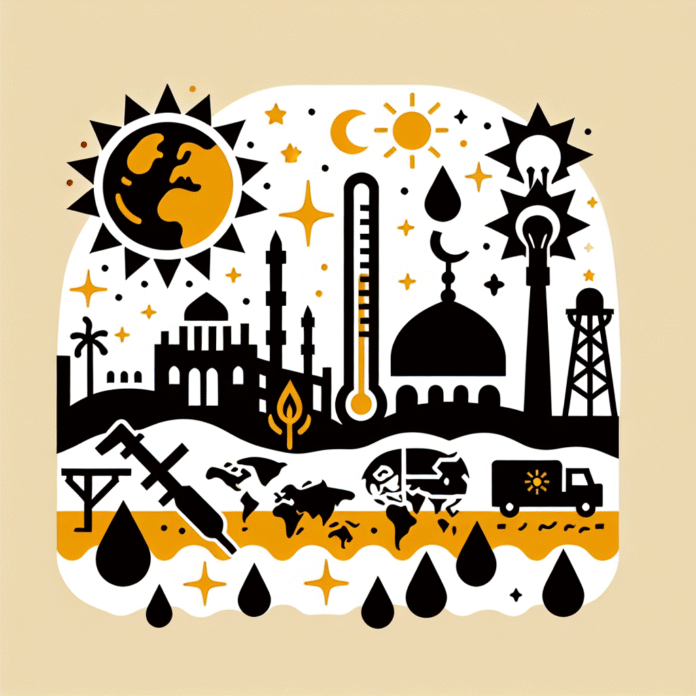Israel’s Greatest Threat Identified as Climate Change by Experts
Israel’s Most Pressing Challenge: Climate Change Over Hostile Groups
In a striking assessment, experts are increasingly identifying climate change as Israel’s most formidable adversary, surpassing traditional threats posed by militant groups such as Hamas and Hezbollah. While these organizations continue to pose security challenges, the long-term impacts of climate change are becoming more pronounced, presenting existential risks that could undermine national stability and security.
Understanding the Threat Landscape
Hamas and Hezbollah have long been viewed as Israel’s primary opponents, engaging in military confrontations and asymmetric warfare. However, analysts argue that the environmental crisis is reshaping the geopolitical landscape in ways that could be far more disruptive. Climate change is expected to exacerbate water shortages, increase desertification, and lead to more frequent and severe weather events, all of which could destabilize the region.
Water Scarcity: A Growing Concern
Israel, a country that has often dealt with water scarcity, faces an even more dire future as climate change continues to deplete vital water resources. The Jordan River and other critical water sources are dwindling, leading to heightened tensions not only within Israel but also with neighboring countries that share these water resources. Experts warn that potential conflicts over water access could become a significant source of instability.
Impact on Agriculture and Food Security
The agricultural sector, a cornerstone of Israel’s economy, is also under threat from climate change. Changing weather patterns and extreme temperatures are likely to affect crop yields, leading to food shortages and increased prices. This could further strain the socio-economic fabric of the nation and provoke unrest among populations that rely on agriculture for their livelihoods.
Increased Natural Disasters
Climate change is linked to an increase in the frequency and severity of natural disasters, such as floods and heatwaves. For Israel, this means greater challenges in disaster preparedness and response. The government may need to allocate more resources to emergency services and infrastructure resilience, diverting attention from traditional security threats.
Regional Implications
The ramifications of climate change extend beyond Israel’s borders, impacting the broader Middle East. Neighboring countries are similarly grappling with environmental issues, which could lead to mass migrations and spillover effects. As populations move in search of more viable living conditions, tensions could rise, exacerbating existing conflicts and creating new ones.
Conclusion: A Call for Action
As Israel navigates these multifaceted challenges, it is imperative for policymakers to recognize climate change as a critical national security issue. Collaborative efforts with neighboring countries to address water management, invest in sustainable agricultural practices, and enhance disaster preparedness are essential. By prioritizing environmental resilience, Israel can better safeguard its future against the looming threat of climate change, ensuring stability in a region often fraught with conflict.


